Michael Farrell
Bon and Lesley, a playlist by Shaun Prescott
Ahead of the launch of his second novel Bon and Lesley, an event which includes live music by Newcastle band Troth, Shaun Prescott presents a playlist of the music he loved while writing the book.
With a few exceptions, none of these songs inspired the writing of Bon and Lesley. Some of them create moods that seemed like appropriate places to start from, while others are just songs that filled my life during the years I spent writing the novel. I don’t know what any of these songs are about, if they’re about anything. If they have words, I never notice the substance of them.
Most of the time I can’t listen to music while writing, because that would almost be like trying to write a song while listening to one. But I sometimes want to capture, through writing, the sensations that music evokes for me. I mustn’t be alone in this. Music is the most powerful art form, and the best music seems accidental, like it is not just humans making it. My apologies to musicians, but it seems to me that the creators of music have almost no control at all. They do not construct the power in their works, they are noticed by strange living resonances that choose them as vessels. I used to write about music but gave it up because explaining its power lost its appeal. I just believe it’s magic now.
Akira Rabelais’ ‘The Little Glass III’ would have appeared at the top of this playlist, but it isn’t on Spotify. You can listen to it here. I highly recommend you do.
Troth – Attar of Roses
This is from Troth’s 2021 cassette Small Movements in Radiance, which I listened to while editing the final drafts of Bon and Lesley. Troth is the Newcastle duo of Amelia Besseny and Cooper Bowman. All of their releases are very different, but a melancholy calm pervades all of them, carried by Besseny’s ghostly voice. I’ve long admired Cooper’s label, Altered States Tapes, which despite keeping a vigilantly low profile has amassed a huge trove of strange, extremely unmarketable, and transporting music. If you want to dive in, Th Blisks’ How So? Is a brilliant place to start. Troth create the kind of discomforted dream worlds I sometimes aspire to evoke in fiction, and it is an honour to have them play at my book launch.
Disembowelment – Your Prophetic Throne of Ivory
I discovered this singular band only five years ago, though their sole album was released in 1993, which is hard to believe, because its marriage of dreamy atmospherics with cavernous death metal is way ahead of its time. During the early stages of writing Bon and Lesley I started listening to metal, because my character Steven seemed to force me to. I stopped listening to metal when I was around 19, and I guess it makes sense that I, a 38-year-old man, would return to it now, but only in intense weekly spurts when my mood calls for it. This particular track feels genuinely unsettling to me. Another metal song I listened to during the period I spent writing Bon and Lesley is Bell Witch’s ‘Mirror Reaper’, but it runs for an hour and a half, so it’s not a great playlist candidate.
Cross Record – PYSOL My Castle
When I finished Bon and Lesley, but before it had been edited, I listened to this song through laptop speakers and its embrace was so forceful it brought me to tears. I was sitting on my balcony late at night, and two possums – a mother and her baby – were sniffing at our cat’s dry food.
Blue Divers – Kitchen Light On
This is just a really beautiful instrumental that, due to the suggestion of its title, reminds me of the sensation of waking in the early hours to find a single light left on in the house. A comforting reminder of waking life in the dead of night. The whole album is gorgeous.
DJ Loser – beat09422
I wanted to include the song ‘beat09422’ from DJ Loser’s cassette In Order to Protect, but it’s not on Spotify, so this will do. I ordered the aforementioned cassette after hearing DJ Loser in a Kode9 mix, and I listened to it a lot while thinking about my writing. ‘Beat09422’, and this song too, feels like a radio violently admonishing me. The way everything is amplified to its breaking point results in an unlikely, tranquillising ambience.
Babyfather – Meditation
Dean Blunt is an artist from London whose work covers a lot of territory. He’s never released anything I haven’t loved, whether under his own name, as Babyfather, or as Hype Williams (a duo with Inga Copeland, not as in the director). I listened to this Babyfather album a lot while thinking about how to write Bon and Lesley. It’s a record full of incredible, atmospheric pop songs, all couched in what many would consider ‘unlistenable’ noisy collage. There’s a real sense of crisis spread across this Babyfather record, but it’s also playful and weird, and funny at times. It’s probably an old-fashioned way of thinking about cultural production in the 2020s, but I feel like this record will become a classic.
OneFour – Spot the Difference
I listened to OneFour a lot after reading about their infamy in this article. I have always loved the crisp, brazenly digital production in grime, and drill seems to be a direct evolution of that subgenre. Drill reminds me of the good Dizzee Rascal albums, early Wiley, and Trim, but there’s a somehow even greater mood of urgency, which circa-2005 I would have thought impossible.
After discovering OneFour I became briefly obsessed with this country’s underground rap, following seemingly endless YouTube rabbit holes. Sometimes I would plan to write late into the night, but instead would fall into the trap, admiring the incredible DIY spirit of these artists (OneFour is massive, but there are hordes of artists with far smaller profiles uploading material, and if you follow the rabbit hole long enough, you end up finding the portrait-orientation smartphone recordings with sub-500 views, recorded in messy bedrooms). The only relevance this has to my writing is that my novel might have been finished earlier if I hadn’t discovered OneFour. You can’t write while listening to them or their fellow travellers. You can’t even really do the dishes, or walk, because it throttles you. Despite all this, it’s one algorithmic path I’m glad to have followed.
Lustre – Part one (Dream of Stars)
Another metal song, though it isn’t heavy. It reminds me of the atmospheric, symphonic style of black metal that emerged from the ‘90s, the stuff about Tolkien, made by larping young men who probably had Gary Gygax’s portrait framed on their bedroom walls. With a handful of exceptions, metal is all texture to me, and this song really is just all texture, and it’s lovely in its own melodramatic way, especially on misty afternoons. I’m not really into fantasy novels, but I love fantasy videogames. I don’t care for the story details, the politics, the lore, the lords, kings, queens, battles, lizard people etc, I just want the visions of towering castles with snow-capped mountains in the background. That’s basically what Lustre evokes.
Kali Malone – Glory Canon III
Harold Budd – Abandoned Cities
In 2019 I went away for a weekend to a small house near Branxton, and listened to these songs on repeat for two days and nights while writing, in pretty much its entirety, the third section of Bon and Lesley. The other two parts were much harder.
Sometimes I can write to music, but the speakers need to be far enough away, ideally in another room. The sound needs to fill a space softly, and it cannot command my full attention. For that reason, headphones won’t do. It’s a hard effect to achieve at home if you have kids who might not appreciate bleak ambient music infecting their dreams.
Roy Panton and Millie Small – Oh, Shirley
When I bought this collection of Roy Panton and Yvonne Harrison songs, my then three-year-old daughter immediately latched onto it. I adore this song and have heard it roughly 500 times since 2018. That’s a guess, but it’s not an exaggeration. I am lucky that my daughter seems to share my inability to function without music, and that she loves most of the music I play her. It’s a level of companionship that I have always sought in adult friends. Another family favourite, Decadance’s ‘On and On’, isn’t on Spotify except in the form of some inferior remixes.
Bell Witch – Mirror Reaper
To avoid accusations of cowardly playlist making I have added Bell Witch’s ‘Mirror Reaper’ after all, but at the end, even though it clashes badly with Roy Panton, so that you can stop listening if you want. It’s a truly amazing creation.
Listen to the full playlist:
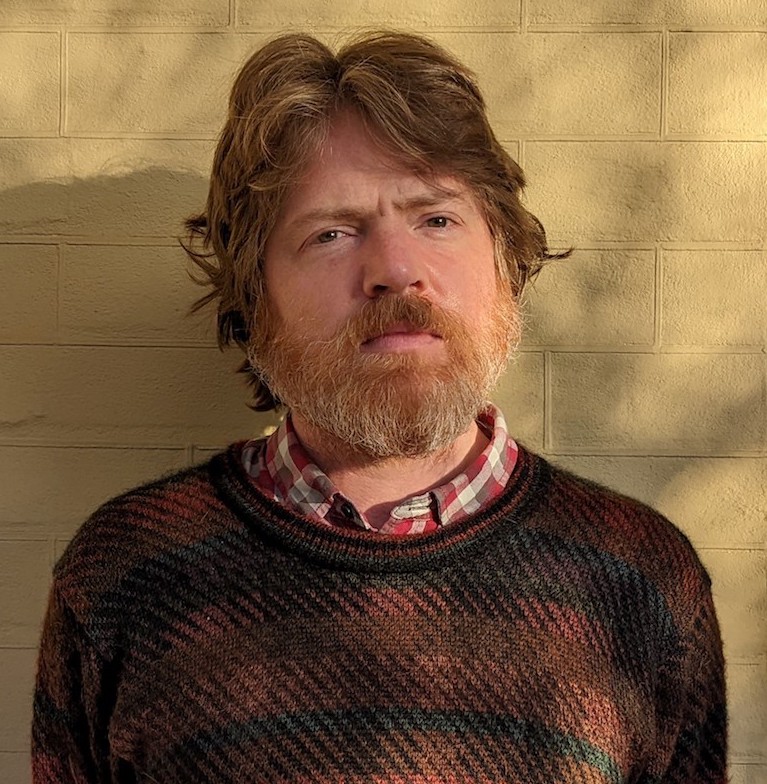
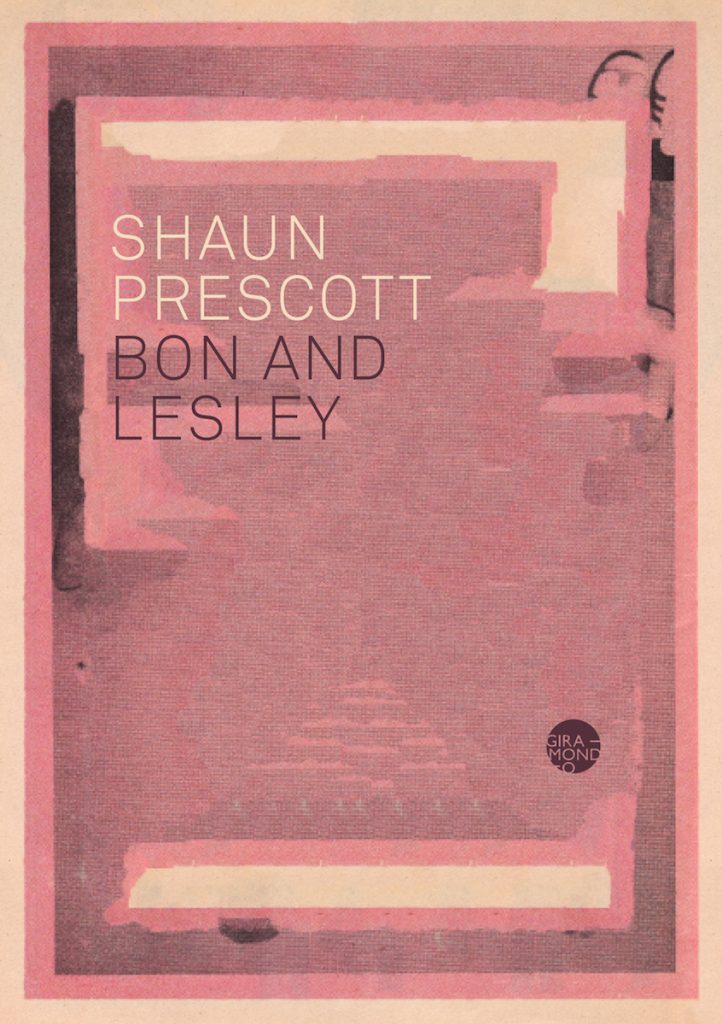
Michael Farrell: a note on Googlecholia
The award-winning Melbourne poet Michael Farrell reflects on Googlecholia (October 2022), his latest poetry book following Family Trees (2020).
Googlecholia is my sixth book with Giramondo, but its publication is not something I take for granted. The book’s title obviously alludes to melancholia, which, in the context of long-term depression, might be seen as a relatively manageable period. Elsewhere I have referred to the affects associated with using the internet as a writing resource (in a conventional research sense, rather than, what used to be called, the ‘google sculpting’ of Flarf, and the wholesale appropriations of what was conceptual poetry).
The titling has come to seem less neutral since first writing the manuscript, as I began to suffer from screen sickness, due to severe depression and anxiety, exacerbated by Melbourne’s lockdowns. (Writers – be careful.) During this time (about eight months) I found it difficult to look at my phone – let alone make calls – use my laptop, or watch TV. I could not read or write. In my morbidity, I sent the manuscript to Giramondo more as a safekeeping gesture, than as an expression of readiness. Eventually I emerged from the worst of it, and was able to work further on the book.
The forms of the poems themselves vary. While some appear relatively standard, in terms of type and stanza, the newest poems (‘In The Year Of Our Modernism 1922’, ‘The Big Blue Play’, ‘Where Her Refers To Lydia Davis Or Proust’) attempt to unsettle these forms; to resist verisimilitude. While experimentalism, as a framework, can defuse the impact of specific experiments, for myself, in this case, it keeps the writing alive to poetry’s possibilities: not just in terms of form (in its various aspects), but in terms of what can be said, and the range of voice deployed: the positions and positioning of voice.
More recently I have been writing new poems, so, hopefully, the books will continue.
— Michael Farrell
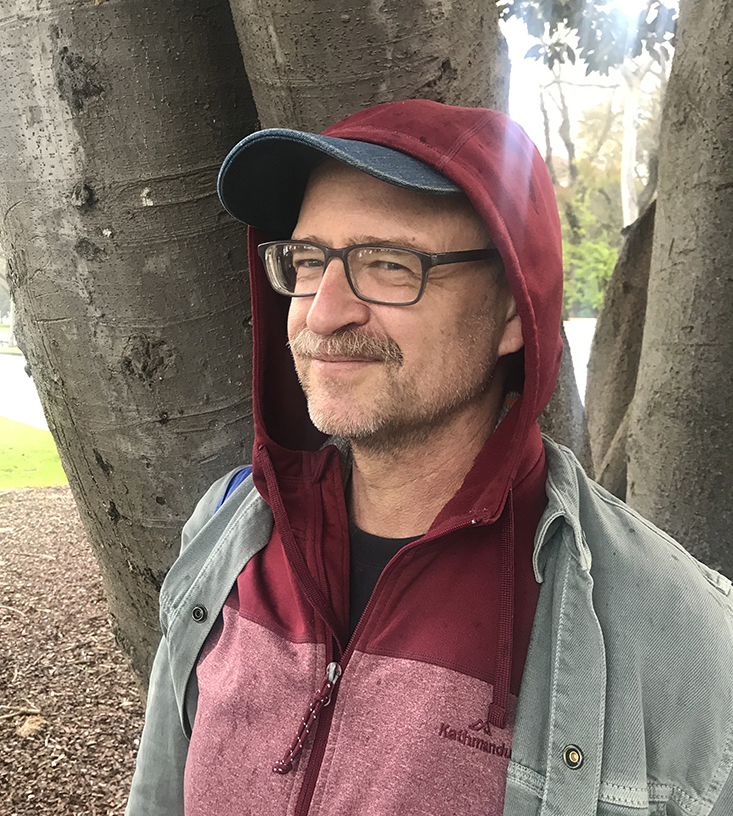
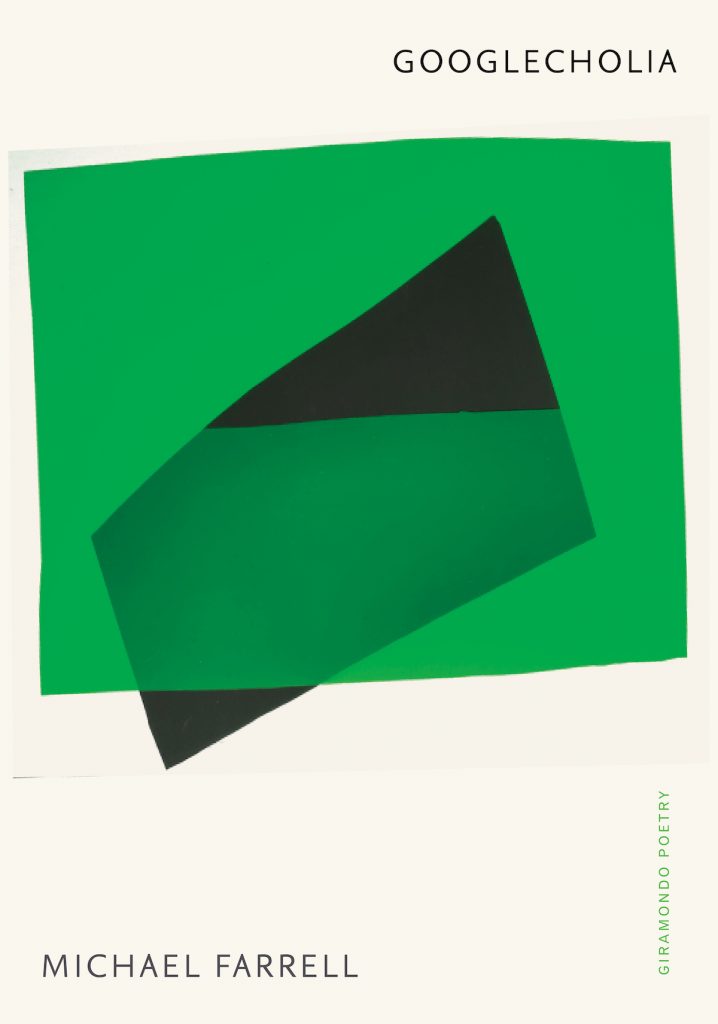
‘French Open’: a poem by Michael Farrell
The following poem is from Googlecholia, a collection by Michael Farrell published in 2022.
French Open
You can’t see said Chuck Baudelaire your own shoelace Flowering flowers of New York nearly demonstrating an Evil can derive from doing another person’s job for them Flowers of evil Yves Montand Alain Delon in the stands Angering McEnroe with their intrusive invasive glamour Cameras of evil with hovering operators inviting violence American epidermis sensitive all over in its unlikely eros Vulnerability of tennis player juxtaposed with his double Cardboard relatively innocent next to plastic grows quieter Photographers breathe more uneasily as game progresses Hostility is my drug my defining structure quips Baudelaire When the ref chants baby over and over they’re not quoting Flower of evil extraordinaire petunia of evil Justin Bieber Bieber in 1984 is no more than a glyph in his father’s thigh Gladioli of evil Sofia Loren eating homemade marinara Forking it up in the sun her glinting shells favouring Lendl Climate change feeling it breathing hurricaning on his neck Just a breeze it’s not the twenty-first century Johnny not yet He says bet you can’t see where the ball will be when game Ends with a drop shot
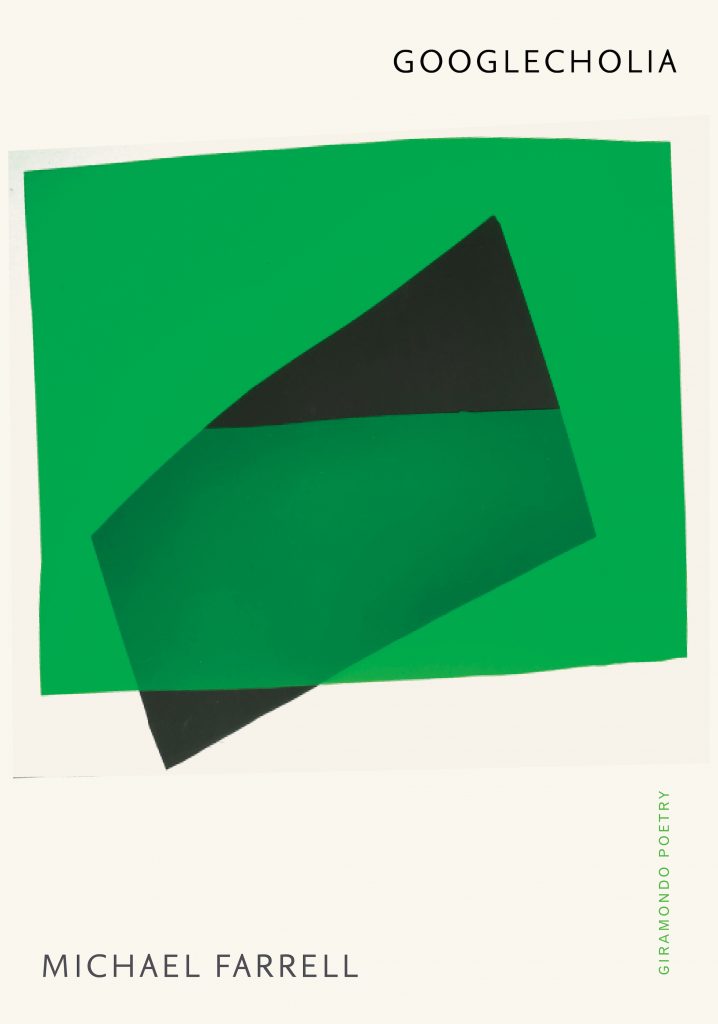
open sesame Sydney Launch
Michael Farrell’s latest collection of poetry, open sesame, will be launched in Sydney at Sappho in Glebe on Sunday, 7 October at 3.30pm.
More details here.
